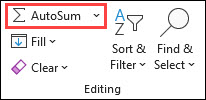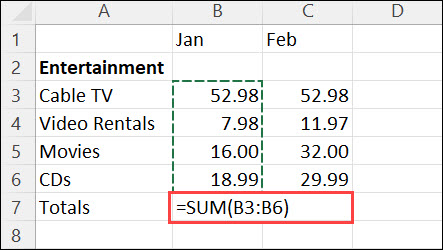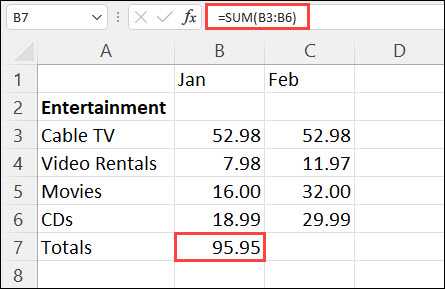How To Create A Equation In Excel
Create a simple formula in Excel
Excel for Microsoft 365 Excel for Microsoft 365 for Mac Excel 2021 Excel 2021 for Mac Excel 2019 Excel 2019 for Mac Excel 2016 Excel 2016 for Mac Excel 2013 Excel 2010 Excel 2007 Excel for Mac 2011 More...Less
You can create a simple formula to add, subtract, multiply or divide values in your worksheet. Simple formulas always start with an equal sign (=), followed by constants that are numeric values and calculation operators such as plus (+), minus (-), asterisk(*), or forward slash (/) signs.
Let's take an example of a simple formula.
-
On the worksheet, click the cell in which you want to enter the formula.
-
Type the = (equal sign) followed by the constants and operators (up to 8192 characters) that you want to use in the calculation.
For our example, type =1+1.
Notes:
-
Instead of typing the constants into your formula, you can select the cells that contain the values that you want to use and enter the operators in between selecting cells.
-
Following the standard order of mathematical operations, multiplication and division is performed before addition and subtraction.
-
-
Press Enter (Windows) or Return (Mac).
Let's take another variation of a simple formula. Type =5+2*3 in another cell and press Enter or Return. Excel multiplies the last two numbers and adds the first number to the result.
Use AutoSum
You can use AutoSum to quickly sum a column or row or numbers. Select a cell next to the numbers you want to sum, click AutoSum on the Home tab, press Enter (Windows) or Return (Mac), and that's it!

When you click AutoSum, Excel automatically enters a formula (that uses the SUM function) to sum the numbers.
Note:You can also type ALT+= (Windows) or ALT+ += (Mac) into a cell, and Excel automatically inserts the SUM function.
+= (Mac) into a cell, and Excel automatically inserts the SUM function.
Here's an example. To add the January numbers in this Entertainment budget, select cell B7, the cell immediately below the column of numbers. Then click AutoSum. A formula appears in cell B7, and Excel highlights the cells you're totaling.

Press Enter to display the result (95.94) in cell B7. You can also see the formula in the formula bar at the top of the Excel window.

Notes:
-
To sum a column of numbers, select the cell immediately below the last number in the column. To sum a row of numbers, select the cell immediately to the right.
-
Once you create a formula, you can copy it to other cells instead of typing it over and over. For example, if you copy the formula in cell B7 to cell C7, the formula in C7 automatically adjusts to the new location, and calculates the numbers in C3:C6.
-
You can also use AutoSum on more than one cell at a time. For example, you could highlight both cell B7 and C7, click AutoSum, and total both columns at the same time.
Copy the example data in the following table, and paste it in cell A1 of a new Excel worksheet. If you need to, you can adjust the column widths to see all the data.
Note:For formulas to show results, select them, press F2, and then press Enter (Windows) or Return (Mac).
| Data | ||
| 2 | ||
| 5 | ||
| Formula | Description | Result |
| =A2+A3 | Adds the values in cells A1 and A2 | =A2+A3 |
| =A2-A3 | Subtracts the value in cell A2 from the value in A1 | =A2-A3 |
| =A2/A3 | Divides the value in cell A1 by the value in A2 | =A2/A3 |
| =A2*A3 | Multiplies the value in cell A1 times the value in A2 | =A2*A3 |
| =A2^A3 | Raises the value in cell A1 to the exponential value specified in A2 | =A2^A3 |
| Formula | Description | Result |
| =5+2 | Adds 5 and 2 | =5+2 |
| =5-2 | Subtracts 2 from 5 | =5-2 |
| =5/2 | Divides 5 by 2 | =5/2 |
| =5*2 | Multiplies 5 times 2 | =5*2 |
| =5^2 | Raises 5 to the 2nd power | =5^2 |
Need more help?
You can always ask an expert in the Excel Tech Community or get support in the Answers community.
Need more help?
How To Create A Equation In Excel
Source: https://support.microsoft.com/en-us/office/create-a-simple-formula-in-excel-11a5f0e5-38a3-4115-85bc-f4a465f64a8a
Posted by: singletonbectinced.blogspot.com

0 Response to "How To Create A Equation In Excel"
Post a Comment